MOONYEEN BLAKEY
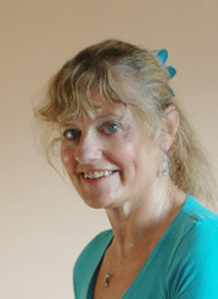 Moonyeen Blakey
Moonyeen Blakey Today I am delighted to welcome historical novelist, Moonyeen Blakey, to my Guest Blog. Moonyeen (or Moon as she prefers to be known) writes Medieval historical fiction with a supernatural twist. I have had the pleasure of visiting Moon at her home in Cleethorpes and can confirm that she makes delicious chocolate cake and lives with two of the softest - but biggest - cats on the planet: a pair of Maine Coon cats called O'Shea and O'Malley.
Moon's debut novel, The Assassin's Wife, tells the story of Nan, a servant girl gifted with second sight. Nan becomes embroiled in the traumatic events at the end of the Wars of the Roses, through her relationships with those in the household of Richard, Duke of Gloucester, later King Richard III. I read the novel and loved it and found it an imaginative and fascinating insight into the truth behind the king whose remains were so recently discovered beneath that car park in Leicester.
Moon's debut novel, The Assassin's Wife, tells the story of Nan, a servant girl gifted with second sight. Nan becomes embroiled in the traumatic events at the end of the Wars of the Roses, through her relationships with those in the household of Richard, Duke of Gloucester, later King Richard III. I read the novel and loved it and found it an imaginative and fascinating insight into the truth behind the king whose remains were so recently discovered beneath that car park in Leicester.
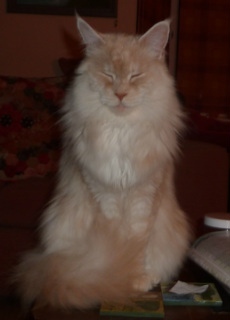 O'Malley
O'Malley Moon was born in Cleethorpes, a so-called 'seaside' town in Lincolnshire. Strictly speaking it's not a sea which laps up her coastline; it's the treacherous River Humber. But the resort still attracts visitors seeking golden sands, donkey rides, arcades and amusements.
Educated in Grimsby, Moon feels she owes a great debt of thanks to her Junior School, Old Clee Primary. It was this new, innovative school which nurtured her creative talents, and here she enjoyed some of the 'happiest days' of her life. Inspirational teachers fostered in her a profound love of literature and drama.
Moving on to the Girls' Grammar School, she became completely engrossed in the study of literature; studying the works of the English 'masters', as well as those of France and Germany. Her passion for drama and for writing continued unabated. Indeed, her desire to act drove her to the Royal Scottish Academy of Music and Drama in Glasgow and she enjoyed a brief theatrical career.
Further study at Bishop Grosseteste College in Lincoln sent her into teaching. In schools, she wrote plays for her students to perform.
Now retired from teaching, Moon is currently busy writing and editing her second and third novels. Her debut novel, The Assassin's Wife was published by Fireship Press in 2012.
Educated in Grimsby, Moon feels she owes a great debt of thanks to her Junior School, Old Clee Primary. It was this new, innovative school which nurtured her creative talents, and here she enjoyed some of the 'happiest days' of her life. Inspirational teachers fostered in her a profound love of literature and drama.
Moving on to the Girls' Grammar School, she became completely engrossed in the study of literature; studying the works of the English 'masters', as well as those of France and Germany. Her passion for drama and for writing continued unabated. Indeed, her desire to act drove her to the Royal Scottish Academy of Music and Drama in Glasgow and she enjoyed a brief theatrical career.
Further study at Bishop Grosseteste College in Lincoln sent her into teaching. In schools, she wrote plays for her students to perform.
Now retired from teaching, Moon is currently busy writing and editing her second and third novels. Her debut novel, The Assassin's Wife was published by Fireship Press in 2012.
Hi Moon,
Thank you for taking part in this interview. Perhaps you could start by telling us how you first got into this crazy world of novel writing?
I've been writing stories ever since I can remember. I suppose I was what people call an 'imaginative' child, and I made up stories even before I could write! I lived in a fantasy world which seemed more real than our humdrum existence, and it was peopled with exciting characters and animals whose adventures I shared.
At junior school my story-telling was encouraged with genuine enthusiasm. Reg Lowis, one of my teachers, was a published author of children's books ('Beyond the Rainbow' was a special favourite - now probably out of print) and he encouraged my writing as well as my artistic talents. Olive Little, the drama teacher and author of children's plays, proved another source of support and inspiration. By the time I left this school I was already determined on a career in the theatre with writing as a side-line!
At grammar school I continued writing. Walking with friends to and from school, I read them episodes of 'serials' I'd written. I blush with shame to recall these dreadful, melodramatic tales of war and intrigue - but they were extremely popular with my friends!
When I started working in schools I began writing plays. These were performed by the students and I sent one of my scripts to Macmillan with a view to getting it published in their Dramascript Series. It was well received and I had positive feed-back, although in the end they decided not to go with it as the villain got away with his crime. Things were pretty moral back then. But I was invited to send more of my writing...
By this time I was working with Sixth-Formers and decided the one-act play I'd written for them would make a great three-act production. The publisher for this kind of play had to be Samuel French, so I sent a submission. Imagine my excitement when I received a reply asking to see the whole manuscript! Sadly, this too came to nothing. The rejection I finally received spoke of their interest in the drama, but that they felt it too 'provincial' for their market...Hmmm...
Joining a writers' group provided the stimulus to getting down to serious novel writing. I'd tinkered about with an historical novel for some time, but the discipline of having to produce something for each meeting was just what I needed.
How did you get your first break?
Helen Corner's WowFactor National Novel Writing Competition in 2007 inspired several members of the group to send in the required 5-page submission. I remember then being asked to send the next fifteen pages--and so it went on until I ended up in the final three...I won.
Winning the competition elated me. It made me feel as if I could write an engrossing historical novel and perhaps living in Cleethorpes wasn't such a bad thing after all.
Thank you for taking part in this interview. Perhaps you could start by telling us how you first got into this crazy world of novel writing?
I've been writing stories ever since I can remember. I suppose I was what people call an 'imaginative' child, and I made up stories even before I could write! I lived in a fantasy world which seemed more real than our humdrum existence, and it was peopled with exciting characters and animals whose adventures I shared.
At junior school my story-telling was encouraged with genuine enthusiasm. Reg Lowis, one of my teachers, was a published author of children's books ('Beyond the Rainbow' was a special favourite - now probably out of print) and he encouraged my writing as well as my artistic talents. Olive Little, the drama teacher and author of children's plays, proved another source of support and inspiration. By the time I left this school I was already determined on a career in the theatre with writing as a side-line!
At grammar school I continued writing. Walking with friends to and from school, I read them episodes of 'serials' I'd written. I blush with shame to recall these dreadful, melodramatic tales of war and intrigue - but they were extremely popular with my friends!
When I started working in schools I began writing plays. These were performed by the students and I sent one of my scripts to Macmillan with a view to getting it published in their Dramascript Series. It was well received and I had positive feed-back, although in the end they decided not to go with it as the villain got away with his crime. Things were pretty moral back then. But I was invited to send more of my writing...
By this time I was working with Sixth-Formers and decided the one-act play I'd written for them would make a great three-act production. The publisher for this kind of play had to be Samuel French, so I sent a submission. Imagine my excitement when I received a reply asking to see the whole manuscript! Sadly, this too came to nothing. The rejection I finally received spoke of their interest in the drama, but that they felt it too 'provincial' for their market...Hmmm...
Joining a writers' group provided the stimulus to getting down to serious novel writing. I'd tinkered about with an historical novel for some time, but the discipline of having to produce something for each meeting was just what I needed.
How did you get your first break?
Helen Corner's WowFactor National Novel Writing Competition in 2007 inspired several members of the group to send in the required 5-page submission. I remember then being asked to send the next fifteen pages--and so it went on until I ended up in the final three...I won.
Winning the competition elated me. It made me feel as if I could write an engrossing historical novel and perhaps living in Cleethorpes wasn't such a bad thing after all.
What was the prize you won?
The prize was to have the novel professionally edited. Helen Corner also promised to introduce me to three agents. She mentioned several who'd shown some interest but they wanted to see the ms when it had been re-vamped. She introduced me to another who spoke to me on the phone a number of times, but historical fiction wasn't really his thing. He offered me some useful advice but didn't feel he could take me on. So I settled down to editing. The professional critique I received from someone named 'Dinah' was brilliant, detailed and encouraging. It remains in a folder by my desk to this day.
The prize was to have the novel professionally edited. Helen Corner also promised to introduce me to three agents. She mentioned several who'd shown some interest but they wanted to see the ms when it had been re-vamped. She introduced me to another who spoke to me on the phone a number of times, but historical fiction wasn't really his thing. He offered me some useful advice but didn't feel he could take me on. So I settled down to editing. The professional critique I received from someone named 'Dinah' was brilliant, detailed and encouraging. It remains in a folder by my desk to this day.
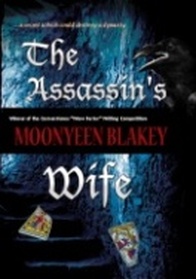
It took me a long time to come up with a satisfactory re-write. By then Helen Corner had lost interest in me, and so had those once enthusiastic agents. I learned a very hard lesson from this experience. Submitting to agents and publishers can be soul-destroying. One needs a thick-skin and reckless determination. Most agents don't even bother to reply. Those who do send curt 'standard' rejections. Some keep you 'dangling' for months.
Finally, just before Christmas 2011, I received an offer from Jessica Knauss of Fireship Press....an offer I couldn't refuse! My first novel, The Assassin's Wife was published the following year.
Finally, just before Christmas 2011, I received an offer from Jessica Knauss of Fireship Press....an offer I couldn't refuse! My first novel, The Assassin's Wife was published the following year.
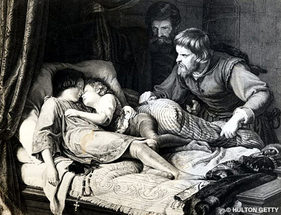 'The Princes in the Tower'
'The Princes in the Tower' What attracted you to the genre of Historical Fiction?
I've long been drawn to the fifteenth century. I suppose seeing Shakespeare's history plays at Stratford-upon-Avon as a teenager really engaged my imagination. I began reading all I could about 'The Wars of the Roses'. Ideas for a story buzzed in my head for a long, long time. It wasn't until I was unemployed for a long time that I began my research in earnest. Ashamed of being out of work, I hid myself in the library and filled folders with notes as I studied the famous men and women who'd lived during this turbulent period. I got the library to send for more obscure books and so my information grew.
This research made me determined to write an historical novel set in fifteenth century England. I felt drawn to the powerful female characters whose stories had been told only through the eyes of men. I loved the intrigue of this particular period, and revelled in the machinations of powerful, manipulative men like Warwick the 'Kingmaker' . I was absorbed by the mystery surrounding the disappearance of those 'Princes in the Tower'. But rather than telling a story about the rich and famous, I wanted to show the events through the eyes of a simple, peasant girl...a girl with Second Sight.
I've long been drawn to the fifteenth century. I suppose seeing Shakespeare's history plays at Stratford-upon-Avon as a teenager really engaged my imagination. I began reading all I could about 'The Wars of the Roses'. Ideas for a story buzzed in my head for a long, long time. It wasn't until I was unemployed for a long time that I began my research in earnest. Ashamed of being out of work, I hid myself in the library and filled folders with notes as I studied the famous men and women who'd lived during this turbulent period. I got the library to send for more obscure books and so my information grew.
This research made me determined to write an historical novel set in fifteenth century England. I felt drawn to the powerful female characters whose stories had been told only through the eyes of men. I loved the intrigue of this particular period, and revelled in the machinations of powerful, manipulative men like Warwick the 'Kingmaker' . I was absorbed by the mystery surrounding the disappearance of those 'Princes in the Tower'. But rather than telling a story about the rich and famous, I wanted to show the events through the eyes of a simple, peasant girl...a girl with Second Sight.
How easy –or hard - was it for you to find ideas for your second novel or second series?
I have so many ideas for novels I don't suppose I'll ever get round to writing them all--I'm not a quick writer--I spend a lot of time editing and re-jigging my work. It has to be 'right' before I can consider submitting it for publication. I wish I could speed up this process, but I haven't found the 'secret' to this yet!
How do you ensure that the setting, characters and details in your novels are authentic and unique?
Meticulous research is vital to make my novels authentic and unique. I'm always checking facts and discovering new information. I loathe inaccuracy in historical fiction--and there's a lot of it about! I know the average reader isn't too bothered about it, preferring a 'good' story to accuracy, but I'm a bit of a pedant when it comes to getting the facts right. Of course I also follow my intuitions and have been amazed and delighted when some of these have turned out to be correct! I try to visit all the locations in my novel to get the atmosphere and allow myself to imagine what it would have been like in fifteenth century England.
What is the most surprising thing you learnt about the publishing industry?
The most surprising thing I've learned about the publishing industry is that I'm not surprised by its 'closed shop' attitude. I'd discovered how difficult it is to break into the acting world - to acquire that magical equity card which opens doors. I'd suspected the same thing would happen in the publishing world, so it was no shock to find it true.
Unless one is published by one of the 'Big Five' then one is pretty much on one's own, and getting noticed is more difficult than writing a novel. The public is wary of authors who are published by 'unknown' small presses. They like to 'know' the author is published by a firm they recognize. That way they feel the authors' work must have value. The 'Big Five' still dominate the book shops and supermarkets. Even libraries order their stock from 'the catalogue' which lists all the new books from the 'Big Five'. How to break down these barriers? That is the question!
I believe the future of publishing is definitely in e-books (in spite of what the media would have us think.) Young people down-load books to their e-readers happily. 'Regular' books still enjoy a place in the world, but perhaps when our generation is gone, their popularity will diminish too.
I worry that the e-publishing market is flooded with poor quality books though. I read stuff which had clearly not been edited, is badly constructed, poorly plotted, mispelt even. The 'world and his wife' is self publishing. Sadly so much of what is being churned out, is dire. This means that 'good' writing from self-published authors gets over-looked--lost in the mass of rubbish. Readers become increasingly reluctant to try a self-published or indie published 'newbie'. I think this will mean the 're-birth' of quality editors and agents. I think we have to have some kind of 'quality control' to secure readers in the future.
What are the best and worst things about being a writer?
The most rewarding experience for me has been 1) winning the Cornerstones' WowFactor National Novel Writing Competition in 2007; 2) seeing my debut novel in print; 3) my launch and subsequent 'presentations' when I can meet readers face-to-face and get feed-back on what they want.
The worst and most difficult thing I have to deal with is the marketing. I try social networking, Facebook, Twitter, Linkedin etc., I join forums and discussions on various websites, I do free presentations around the country, I try to get reviews in newspapers etc., I try everything and anything to get noticed! But it's so time-consuming and often un-rewarding and I just want to write novels! I could do with someone to take care of this aspect for me. I do love meeting readers and talking to them, but the rest is just a hard slog. I'm a pretty private person - especially with regard to my personal life - so I don't enjoy the social net-working aspect.
I have so many ideas for novels I don't suppose I'll ever get round to writing them all--I'm not a quick writer--I spend a lot of time editing and re-jigging my work. It has to be 'right' before I can consider submitting it for publication. I wish I could speed up this process, but I haven't found the 'secret' to this yet!
How do you ensure that the setting, characters and details in your novels are authentic and unique?
Meticulous research is vital to make my novels authentic and unique. I'm always checking facts and discovering new information. I loathe inaccuracy in historical fiction--and there's a lot of it about! I know the average reader isn't too bothered about it, preferring a 'good' story to accuracy, but I'm a bit of a pedant when it comes to getting the facts right. Of course I also follow my intuitions and have been amazed and delighted when some of these have turned out to be correct! I try to visit all the locations in my novel to get the atmosphere and allow myself to imagine what it would have been like in fifteenth century England.
What is the most surprising thing you learnt about the publishing industry?
The most surprising thing I've learned about the publishing industry is that I'm not surprised by its 'closed shop' attitude. I'd discovered how difficult it is to break into the acting world - to acquire that magical equity card which opens doors. I'd suspected the same thing would happen in the publishing world, so it was no shock to find it true.
Unless one is published by one of the 'Big Five' then one is pretty much on one's own, and getting noticed is more difficult than writing a novel. The public is wary of authors who are published by 'unknown' small presses. They like to 'know' the author is published by a firm they recognize. That way they feel the authors' work must have value. The 'Big Five' still dominate the book shops and supermarkets. Even libraries order their stock from 'the catalogue' which lists all the new books from the 'Big Five'. How to break down these barriers? That is the question!
I believe the future of publishing is definitely in e-books (in spite of what the media would have us think.) Young people down-load books to their e-readers happily. 'Regular' books still enjoy a place in the world, but perhaps when our generation is gone, their popularity will diminish too.
I worry that the e-publishing market is flooded with poor quality books though. I read stuff which had clearly not been edited, is badly constructed, poorly plotted, mispelt even. The 'world and his wife' is self publishing. Sadly so much of what is being churned out, is dire. This means that 'good' writing from self-published authors gets over-looked--lost in the mass of rubbish. Readers become increasingly reluctant to try a self-published or indie published 'newbie'. I think this will mean the 're-birth' of quality editors and agents. I think we have to have some kind of 'quality control' to secure readers in the future.
What are the best and worst things about being a writer?
The most rewarding experience for me has been 1) winning the Cornerstones' WowFactor National Novel Writing Competition in 2007; 2) seeing my debut novel in print; 3) my launch and subsequent 'presentations' when I can meet readers face-to-face and get feed-back on what they want.
The worst and most difficult thing I have to deal with is the marketing. I try social networking, Facebook, Twitter, Linkedin etc., I join forums and discussions on various websites, I do free presentations around the country, I try to get reviews in newspapers etc., I try everything and anything to get noticed! But it's so time-consuming and often un-rewarding and I just want to write novels! I could do with someone to take care of this aspect for me. I do love meeting readers and talking to them, but the rest is just a hard slog. I'm a pretty private person - especially with regard to my personal life - so I don't enjoy the social net-working aspect.
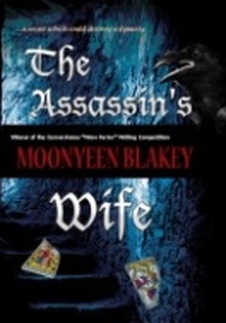
Have you any advice for newbie authors?
I strongly suggest they join a writers' group where criticism is honest - ruthless even - but constructive. I urge a willingness to listen and take advice. I recommend discipline, determination and perseverance. I can't stress enough the need for courage and endurance and an inner wisdom which knows when it's right to discard all the 'rule books' . Too many authors spend all their time going to workshops and talks on writing instead of listening to their own hearts. By all means go to some of these 'classes' but remember that these so-called rules are mere guidelines. Many of our best novelists break all the rules!
Thanks for taking the time to answer my questions, Moon. It was fascinating. Good-luck with your next novels!
You can read more about Moon and her novels at her website: www.MoonyeenBlakey.com
I strongly suggest they join a writers' group where criticism is honest - ruthless even - but constructive. I urge a willingness to listen and take advice. I recommend discipline, determination and perseverance. I can't stress enough the need for courage and endurance and an inner wisdom which knows when it's right to discard all the 'rule books' . Too many authors spend all their time going to workshops and talks on writing instead of listening to their own hearts. By all means go to some of these 'classes' but remember that these so-called rules are mere guidelines. Many of our best novelists break all the rules!
Thanks for taking the time to answer my questions, Moon. It was fascinating. Good-luck with your next novels!
You can read more about Moon and her novels at her website: www.MoonyeenBlakey.com

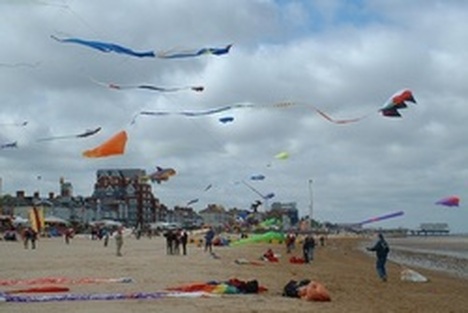
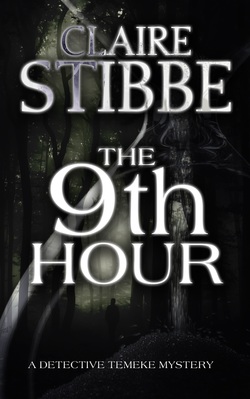
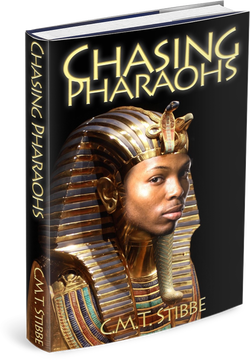
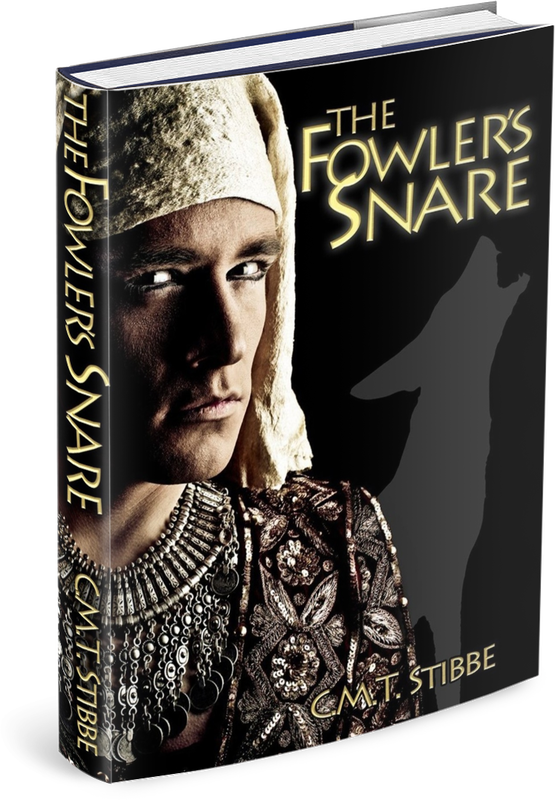
 RSS Feed
RSS Feed